Metabolism and Nutrition (MeNu) Program
Van Andel Institute’s Metabolism and Nutrition (MeNu) Program is a collaborative effort to understand the impact of diet and nutrition on human health at the molecular level. The program has three main goals:
- Drive progress in the field of metabolism research
- Transform how metabolism and diet are approached in the clinic
- Improve human health
How do we do this?
We equip brilliant scientists with leading technology, crucial collaborators and cutting-edge support to accelerate discoveries — transforming bold ideas into breakthroughs in metabolism.
The program is led by Russell Jones, Ph.D., chair of VAI’s Department of Metabolism and Nutritional Programming.
Questions? Please contact MeNu Program Manager Kelsey Williams, Ph.D., at [email protected].

VAI’s Mass Spectrometry Core is among the best in the U.S. The powerful analyses it provides enables our scientists to determine detailed information about the molecules that fuel metabolism.
Thanks to two years of deep MeNu investment and key leadership by Dr. Hyoungjoo Lee and Dr. Ryan Sheldon, VAI established a comprehensive proteomics platform that empowers researchers to answer deeper mechanistic questions in the field of metabolism and beyond. This platform is now a service within VAI’s Mass Spectrometry Core.
Collaboration is at the heart of VAI’s mission to support groundbreaking, life-changing science. To this end, the MeNu Program funds VAI scientists in support of innovative, early-stage research projects, with an emphasis on collaborative pilot studies and developing new tools for metabolism research. Funding supports larger cross-functional teams seeking to answer paradigm-shifting questions in the field of metabolism.
For information on how VAI investigators may apply for pilot funding opportunities, please contact MeNu Program Manager Kelsey Williams, Ph.D., at [email protected].
As part of our commitment to training the next generation of scientists, we are pleased to offer our Pathway-to-Independence Award, which provides funding to selected senior postdoctoral fellows at VAI interested in launching independent tenure-track research careers. The program presents up to two awards each year, with awards providing two years of project support under the guidance of the postdoc’s mentor.
For more information, please contact MeNu Program Manager Kelsey Williams, Ph.D., at [email protected].
The Metabolism & Nutrition (MeNu) Research Consortium is a collaborative effort to understand the impact of diet and nutrition on human health at the molecular level, bringing together the brightest minds and boldest ideas to move the needle in basic metabolism research.
Comprising leading institutions across the U.S., the Consortium provides research support to catalyze breakthroughs in metabolism and foster institutional buy-in to accelerate collaboration.
Member Institutions
- Van Andel Institute
- Northwestern University
- Michigan State University
- University of California, Los Angeles
- University of Pennsylvania
The following publications include co-authors who have been awarded MeNu support.
Ma EH, Dahabieh MS, DeCamp LM, Kaymak I, Kitchen-Goosen SM, Oswald BM, Longo J, Roy DG, Verway MJ, Johnson RM, Samborska B, Duimstra LR, Scullion LR, Steadman M, Vos M, Roddy TP, Krawczyk CM, Williams KS, Sheldon RD, Jones RG. 2024. 13C metabolite tracing reveals glutamine and acetate as critical in vivo fuels for CD8 T. Sci Adv 10(22).
Xiao X, Fay A, Santos Molina P, Kovach A, Glickman MS, Li H. 2024. Structure of the M. tuberculosis DnaK−GrpE complex reveals how key DnaK roles are controlled. Nat Commun15:660.
Pérez-Mojica JE, Enders L, Walsh J, Lau KH, Lempradl A. 2023. Continuous transcriptome analysis reveals novel patterns of early gene expression in Drosophila embryos. Cell Genom.
Luda KM, Longo J, Kitchen-Goosen SM, Duimstra LR, Ma EH, Watson MJ, Oswald BM, Fu Z, Madaj Z, Kupai A, Dickson BM, DeCamp LM, Dahabieh MS, Compton SE, Teis R, Kaymak I, Lau KH, Kelly DP, Puchalska P, Williams KS, Krawczyk CM, Lévesque D, Boisvert FM, Sheldon RD, Rothbart SB, Crawford PA, Jones RG. 2023. Ketolysis drives CD8+ T cell effector function through effects on histone acetylation. Immunity.
Pérez-Mojica JE, Enders L, Lau K, Lempradl A. 2023. Single-embryo RNA sequencing for continuous and sex-specific gene expression analysis on Drosophila. STAR Prot.
Xiao X, Feng X, Yoo JH, Kovach A, Darwin KH, Li H. 2022. The β-grasp domain of proteasomal ATPase Mpa makes critical contacts with the Mycobacterium tuberculosis 20S core particle to facilitate degradation. mSphere 7(5):e00227422.
Longo J, Watson MJ, Vos MJ, Williams KS, Jones RG. 2022. PYGBacking on glycogen metabolism to fuel early memory t cell recall responses. Mol Cell 82(16):2918–2921.
Kaymak I, Luda KM, Duimstra LR, Ma EH, Longo J, Dahabieh MS, Faubert B, Oswald BM, Watson MJ, Kitchen-Goosen SM, DeCamp LM, Compton SE, Fu Z, DeBerardinis RJ, Williams KS, Sheldon RD, Jones RG. 2022. Carbon source availability drives nutrient utilization in CD8+ T cells. Cell Metab.
Recognizing excellence in metabolism research
The Rising Stars in Metabolism Symposium recognizes exceptional, up-and-coming postdoctoral fellows whose innovative research is poised to deeply impact the metabolism field.
Invited fellows will present a seminar on their work to the Institute’s distinguished faculty and its vibrant metabolism research community. The symposium also features ample networking and mentoring opportunities, including a career enrichment panel designed to support success.
The Rising Stars in Metabolism Symposium is hosted by VAI’s Metabolism & Nutrition (MeNu) Program in collaboration VAI’s Department of Metabolism and Nutritional Programming.
The 2024 event is closed. If you are interested in being considered for future cycles, please email [email protected].
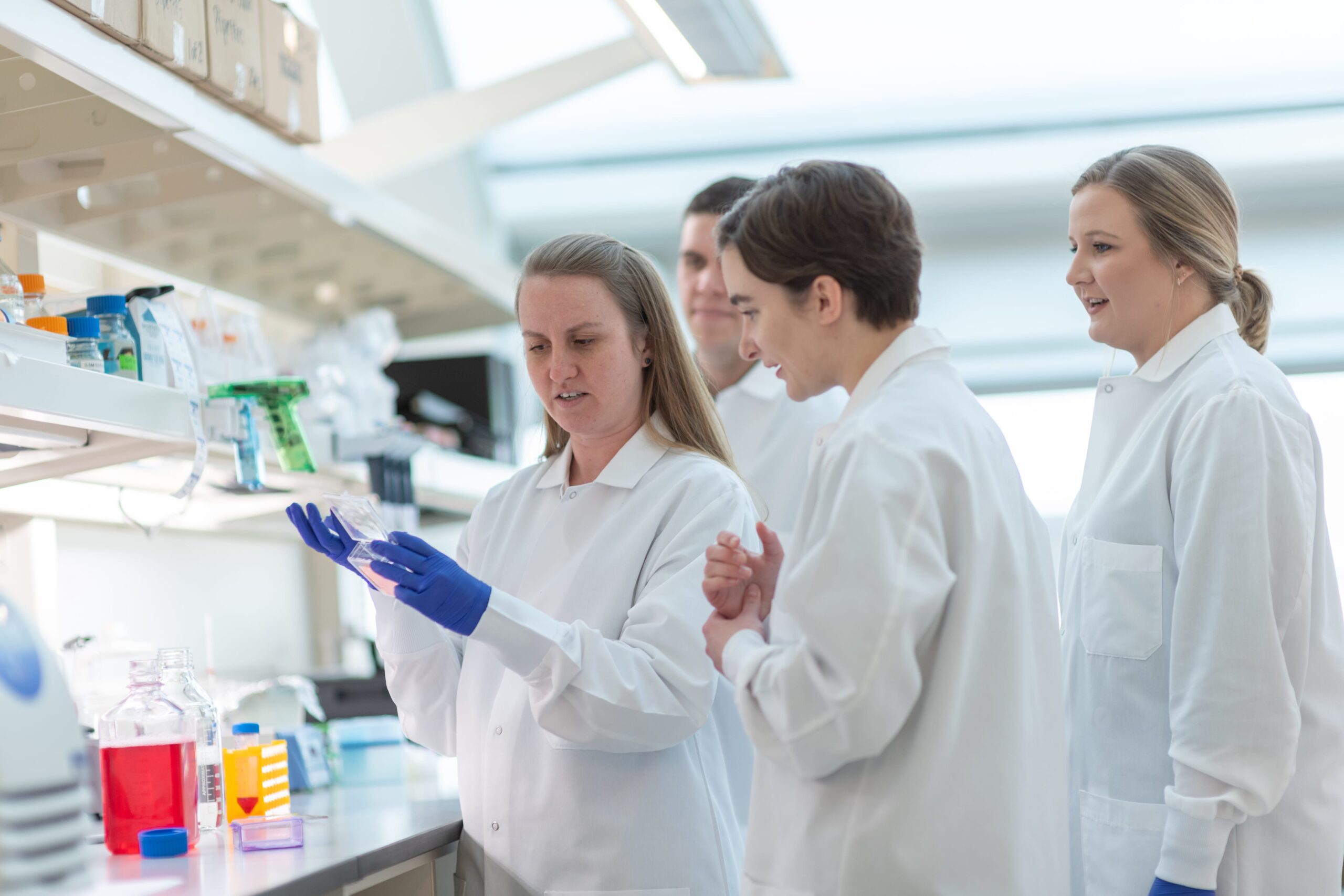
Agenda
9:15 a.m. – Keynote: Ed Chouchani, Ph.D.
Associate Professor, Harvard Medical School and Dana-Farber Cancer Institute
Investigator, Howard Hughes Medical Institute
Mechanisms of metabolite regulation of protein function
9:50 a.m. – Judi Simcox, Ph.D.
Assistant Professor, University of Wisconsin-Madison
10:15 a.m. – Zak Baker, Ph.D.
Staff Scientist, Washington University in St. Louis
Triacylglycerol mobilization underpins mitochondrial stress recovery
10:40 a.m. – Break
10:55 a.m. – Eduardo Perez-Mojica, Ph.D.
Postdoctoral Fellow, Lempradl Lab, Van Andel Institute
Developmental reprogramming by altered metabolism in Drosophila melanogaster
11:20 a.m. – Nora Kory, Ph.D.
Assistant Professor, Harvard T.H. Chan School of Public Health
Mitochondrial transporters and the control of cellular metabolism
11:45 a.m. – Andy Murley, Ph.D.
Postdoctoral Fellow, Dillin Lab, University of California-Berkeley
Quiescent cell re-entry is limited by macroautophagy-induced lysosomal damage
12:10 p.m. – Lunch
1:00 p.m. – Alex Muir, Ph.D.
Assistant Professor, University of Chicago
What is there to eat around here?: How nutrient availability impacts tumor biology
1:25 p.m. – Megan Radyk, Ph.D.
Postdoctoral Fellow, Lyssiotis Lab and Shah Lab, University of Michigan
Loss of NADPH-producing enzymes accelerates pancreatic precancerous lesions
1:50 p.m. – Anna Kotrys, Ph.D.
Research Fellow, Harvard Medical School
Single-cell analysis of mtDNA heteroplasmy dynamics reveals key role of environment-dependent selection
2:15 p.m. – Break
2:45 p.m. – Marcel Morgenstern, Ph.D.
Postdoctoral Fellow, Coon Lab, University of Wisconsin-Madison
From complex systems to protein therapeutics: Leading-edge mass spectrometry strategies
3:10 p.m. – Bennett Fox, Ph.D.
Postdoctoral Fellow, Schroeder Lab, Cornell University
Sexually transmitted metabolites regulate fat metabolism and fecundity in C. elegans
3:35 p.m. – Drew Scott, Ph.D.
Postdoctoral Fellow, Lyssiotis Lab, University of Michigan Medical School
Rewiring of cortical glucose metabolism fuels human brain cancer growth
Metabolism Research at VAI
VAI scientists explore metabolism and nutrition from multiple angles, including their role in the immune system, their effects on diseases like cancer and diabetes, and their impact on cellular energy production and the health of future generations.
Department of Metabolism and Nutritional Programming
The Department of Metabolism and Nutritional Programming is home to a growing group of expert investigators who study the nuanced mechanics of cellular metabolism and their implications for health and disease.
Metabolism and Nutrition (MeNu) Program
The Metabolism and Nutrition (MeNu) Program is a collaborative effort to facilitate game-changing research into the ways diet and nutrition impact health at the molecular level. The program supports interdisciplinary projects at the leading edge of the metabolism field across the institute and MeNu Consortium member institutions.
Meet Van Andel Institute’s Rising Stars
2024 Rising Stars
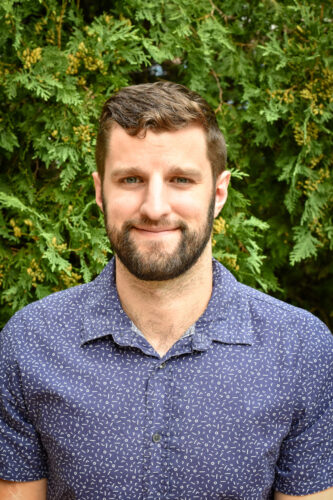 Institution: Washington University in St. Louis
Institution: Washington University in St. Louis
Dr. Zak Baker was born and raised in Saskatoon, Saskatchewan, Canada. There, he attended the University of Saskatchewan where he received his undergraduate degree in Biochemistry. He continued with his graduate studies at University of Saskatchewan earning his PhD under the supervision of Dr. Scot Leary, studying how mitochondrial proteins regulate cellular copper metabolism. Following graduate school, he began his postdoctoral work in the lab of Dr. David Pagliarini at the University of Wisconsin. Zak relocated with the Pagliarini lab to Washington University in St. Louis in 2020 to continue his postdoctoral work. Throughout his time in the Pagliarini lab he has focused on using mass spectrometry and systems biochemistry to discover how cells alter their metabolism in response to mitochondrial stress.
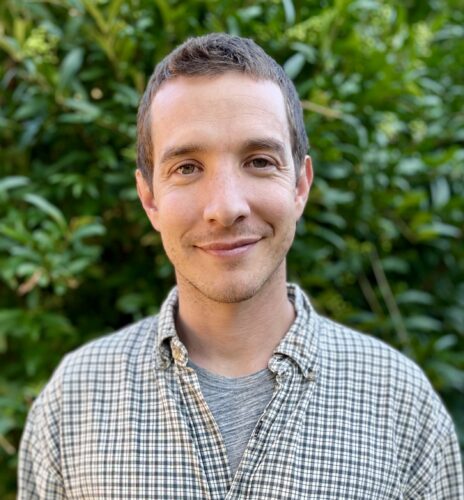 Institution: Cornell University
Institution: Cornell University
Bennett earned his B.A. in chemistry and chemical biology at Cornell University, Ithaca, NY. As an undergraduate in the lab of Prof. Frank Schroeder, Bennett characterized and synthesized signaling molecules in C. elegans. After graduation, Bennett spent one year abroad teaching chemistry at Weill Cornell Medical College – Qatar, before heading to the UW Madison for graduate school. In the lab of Prof. Randy Tibbetts, Bennett earned his Ph.D. studying ubiquitin-binding proteins implicated in neurodegenerative disease. Bennett enjoyed playing a lot of table tennis in between finishing graduate school and starting his postdoctoral studies, which saw him head back to Ithaca and back to the lab of Prof. Frank Schroeder. As a postdoctoral researcher, Bennett became interested in high-resolution mass spectrometry and contributed to the development of Metaboseek, an open-source software for discovery-oriented comparative metabolomics. Bennett applied Metaboseek to study genetic mutations, natural variation, and host-microbe interactions primarily in the model organism C. elegans. Outside of the lab, you can find Bennett playing racquet sports, walking his dog, and hanging out with his family.
 Institution: Harvard Medical School
Institution: Harvard Medical School
Anna is an innovation-driven scientist passionate about leveraging cutting-edge technologies to understand human disease. She was born in New York and raised in Warsaw, Poland. Anna received her B.S in biotechnology and M.S in molecular biology from the University of Warsaw. During her undergraduate studies she received the Rector’s Scholarship for outstanding undergraduate work. Anna completed her PhD at the Institute of Biochemistry and Biophysics in Warsaw focusing on the mitochondrial nucleic acids biology. She discovered novel RNA-binding protein, regulating mitochondrial RNA metabolism in human cells. Her work was awarded with the Prime Minister award and Merck award. Towards the end of her PhD, Anna came to Boston for an internship in the laboratory of Prof. Vamsi Mootha at the Broad Institute of MIT and Harvard. In July 2020, she started her postdoctoral work in the Mootha Lab and since 2021 she is the HHMI Jane Coffin Childs Fellow. Anna was a part of the research team to report the first successful, precise editing of mtDNA. She also developed a novel targeted, modular and scalable single-cell sequencing technology. Her current work focuses on understanding the complex dynamics of the human mitochondrial genome. In the free time Anna enjoys skiing and hiking.
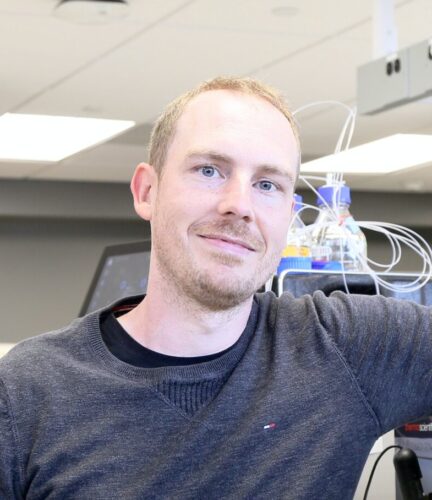 Institution: University of Wisconsin-Madison
Institution: University of Wisconsin-Madison
During my undergraduate studies in biology at Kaiserslautern, I developed a deep interest in cell biology and biochemistry, which was further nurtured by the engaging lectures I attended. For my Diploma thesis, I had the privilege of joining the labs of Prof. Jan Riemer and Prof. Hannes Herrmann, where I investigated “The Significance of Sod1 Activity in the Mitochondrial Inter-membrane Space” using yeast as a model organism. This experience allowed me to gain hands-on expertise in biochemical methods related to mitochondrial research.
Towards the end of my thesis work, I recognized the potential of systems biology approaches, particularly proteomics, in advancing my research. This realization inspired me to pursue a PhD in proteomics. I relocated to Freiburg to join the lab of Prof. Bettina Warscheid, where I employed state-of-the-art LC-MS-based proteomics to explore mitochondrial cell biology. Collaborating with the labs of Prof. Nils Wiedemann and Prof. Klaus Pfanner, we successfully defined the yeast and human mitochondrial proteomes through quantitative proteomics, culminating in my PhD thesis.
Currently, I am excited to contribute my biological expertise to the Coon lab, known for its leadership in mitochondrial proteomics and advanced MS instrumentation. This position not only allows me to apply my knowledge but also to deepen my skills in HPLC, mass spectrometry, and computational analysis. Moreover, I greatly appreciate the supportive environment within the lab and the vibrant community in Madison.
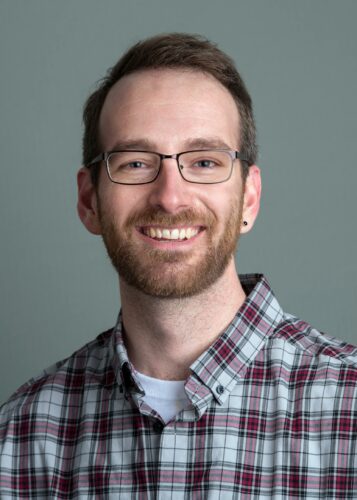 Institution: University of Chicago
Institution: University of Chicago
Dr. Alex Muir is originally from Arizona. He moved to Chicago for university and then completed his PhD in Biochemistry at University of California, Berkeley where he worked to understand how lipid metabolism allows microbes to survive environmental challenges. Dr. Muir then moved to MIT for postdoctoral training where he studied how cancer cells adapt their metabolism to cope with microenvironmental stress. Since 2019, he has been at UChicago where his team has developed techniques to measure the chemistry of the pancreatic tumor microenvironment and how this affects pancreatic cancer biology and response to therapy.
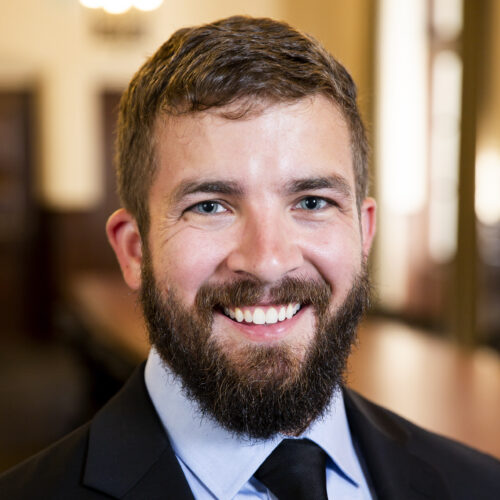 Institution: University of California, Berkeley
Institution: University of California, Berkeley
Andrew Murley, PhD is a postdoctoral researcher in the laboratory of Professor Andrew Dillin at the University of California, Berkeley. His work focuses on organelle homeostasis and rejuvenation in quiescent cells using C. elegans and mammalian cell culture models. He holds a B.S. in Biochemistry and Molecular Biology from Michigan State University and a PhD in Biochemistry and Molecular Biology from the University of California, Davis, where his thesis research with Professor Jodi Nunnari discovered a family of lipid transport proteins at organelle contact sites. For his postdoctoral research in the Dillin lab, he received a Damon Runyon Cancer Research Foundation Fellowship. He lives with his wife and two daughters near Berkeley, CA.
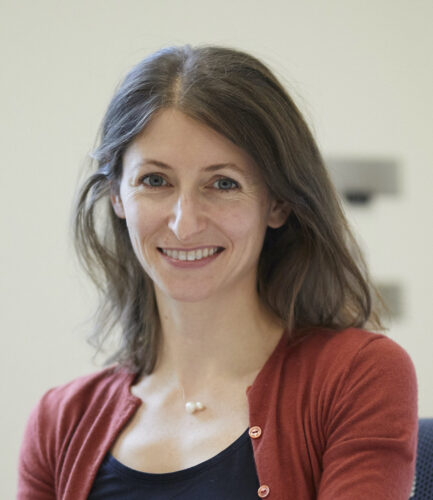
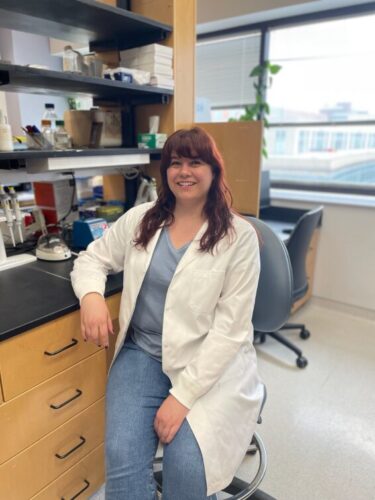 Institution: University of Michigan
Institution: University of Michigan
Dr. Megan Radyk is a Postdoctoral Research Fellow at the University of Michigan in the Department of Molecular & Integrative Physiology. She is co-mentored in the laboratories of Dr. Costas Lyssiotis and Dr. Yatrik Shah. Dr. Radyk earned her B.S. in Biology from The Pennsylvania State University and Ph.D. in Molecular Cell Biology from Washington University in St. Louis. Dr. Radyk’s research addresses how changes in cell metabolism and systemic metabolism drive precancerous lesions and cancer initiation in gastrointestinal organs. Her present studies specifically focus on antioxidant and redox pathways in pancreatic metaplasia and neoplasia.
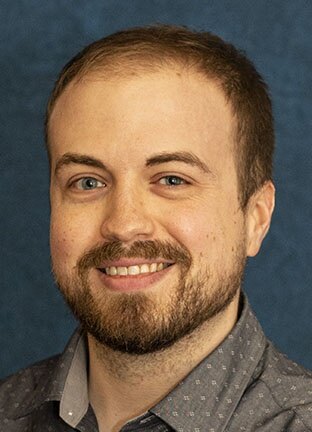 Institution: University of Michigan
Institution: University of Michigan
Andrew Scott is Postdoctoral Research Fellow in the Department of Radiation Oncology at the University of Michigan. As a Fellow under the mentorship of Dr. Daniel Wahl and Dr. Costas Lyssiotis, his translational research focuses on understanding the rewiring of glioblastoma (GBM) metabolism in animal models and human patients with brain cancer. His laboratory work forms the basis for multiple clinical trials at the University of Michigan, in which he is a co-investigator and onsite lead, that directly measure and inhibit tumor metabolic activity in patients with GBM. Dr. Scott’s long-term research goals aim to improve both our understanding of glioma metabolism and our ability to target aberrant metabolic activity in tumors for therapeutic benefit. His research has been supported by awards including the Ruth L. Kirschstein Postdoctoral Individual National Research Service Award (F32), the University of Michigan Cancer Biology T32 Training Program, and the Rogel Cancer Center Postdoctoral Scholarship.
2023 Rising Stars
Long-lived mitochondrial proteins – what are they and why do they exist?
Institution: Northwestern University
Ewa Bomba-Warczak obtained her B.S. in Biological Sciences from the University of Illinois at Chicago, and her Ph.D. in Neuroscience from the University of Wisconsin – Madison. For her graduate thesis, she used microfluidic cell culture platforms, advanced microscopy, and biochemistry to investigate the entry, sorting, and trafficking of clostridial neurotoxins in neurons. She is currently a MOSAIC K99/R00 Postdoctoral Fellow at Northwestern University where she applies in vivo whole rodent metabolic stable isotope pulse-chase labeling and mass spectrometry-based analysis to investigate the lifelong fidelity of mitochondrial proteome and genome in mammalian brains.
A CRISPRi/a screening platform to study cellular nutrient transport in diverse microenvironments
Institution: Harvard Medical School
Chris Chidley is an independent research fellow at Harvard Medical School working with Peter Sorger. Chris uses genetic screening approaches targeting transporters to study nutrient transport, determine how extracellular nutrient levels influence cancer cell metabolism, and explore the nutrient requirements imposed by the tumor microenvironment.
Pinpointing subcellular transporters via organellar IP and untargeted metabolomics
Institution: Stanford University
Wentao Dong is currently a postdoctoral fellow in Professor Monther Abu-Remaileh Lab at Stanford University. He has been working on cancer and neurometabolism via organellar immunoprecipitation (LysoIP and GolgiIP), untargeted metabolomic/lipidomics and isotope tracing. Wentao received his Ph.D. in Chemical Engineering from Professor Gregory Stephanopoulos Lab at MIT and his BS in Chemical Engineering from University of Wisconsin – Madison. He is the recipient of the 10th Neuronal Ceroid Lipofuscinosis (NCL) Research Prize, Novo Nordisk Foundation International Research Alliance Fellowship, David H. Koch Fellowship, Meyer Scholarship, E.J. Crosby Award and Schmid Scholarship.
Nuclear receptor corepressors non-canonically regulate glucose metabolism
Institution: University of Pennsylvania – Institute for Diabetes, Obesity, and Metabolism
I am a postdoctoral fellow in the Lazar laboratory within the Institute for Diabetes, Obesity, and Metabolism at the University of Pennsylvania. My training is rooted in biochemistry, lipid metabolism, and epigenomics and has led me to a strong interest in the study of mechanisms by which metabolic stimuli intersect with the epigenome to regulate transcription in health and disease. I hope to use my experience and expertise in these areas to establish an independent research group with a focus on the epigenomic mechanisms that drive metabolic disease.
Regulation of cell fate by metabolism
Institution: University of Michigan
Peggy Hsu, M.D., Ph.D. is an oncologist and scientist interested in cell fate regulation, early tumorigenesis, and metabolic alterations in lung cancer. Dr. Hsu completed a joint M.D./Ph.D. program at Harvard Medical School and MIT followed by internal medicine residency at Brigham and Women’s Hospital and oncology fellowship at the Dana-Farber Cancer Institute and MGH Cancer Center. She is currently the inaugural Rogel Fellow at the University of Michigan.
Exploiting ketone body metabolism to tune CD8+ T cell effector function
Institution: Van Andel Institute
Dr. Joseph Longo received his B.Sc. from the Honours Molecular Biology and Genetics Program at McMaster University, after which he completed his Ph.D. in the Department of Medical Biophysics at the University of Toronto. He is currently a Postdoctoral Fellow in Dr. Rusty Jones’ lab at Van Andel Institute, where he is actively investigating how diet and nutrition influence tumor metabolism and anti-tumor immunity.
Metabolic control of cell identity across scales
Institution: University of Southern California
Khoa Tran Phuc Le is a postdoctoral fellow under the mentorship of Dr. Yali Dou at the University of Southern California. His work focuses on understanding how the interplay between metabolism and epigenetics regulates cellular plasticity. Because defects in the metabolic-epigenetic crosstalk are fundamental for many pathological conditions, understanding its basic principle will help develop effective treatments for metabolic and developmental diseases.
Genetic and environmental suppressors of mitochondrial dysfunction
Institution: Broad Institute at Harvard Medical School – Massachusetts General Hospital
Joshua Meisel is a postdoctoral scholar in the labs of Vamsi Mootha and Gary Ruvkun at MGH/Broad. Meisel’s research is focused on identifying novel genetic and environmental suppressors of mitochondrial dysfunction using the nematode C. elegans. Meisel holds a B.S. and M.S. in Biology from Stanford University and a Ph.D. in Biology from the Massachusetts Institute of Technology. He is the recipient of the Jane Coffin Childs Fellowship and a K99/R00 Pathway to Independence award. Meisel is an avid bird watcher who favors water and shore birds.
Our Impact
We're raising thousands to save millions
We’re turning hope into action for the millions of people around the world affected by diseases like cancer and Parkinson’s. Find out how you can help us make a difference.
- 122 peer-reviewed papers published in 2024, 63 of which were in high-impact journals
- 15 VAI-SU2C Epigenetics Dream Team clinical trials launched to date
- 10 clinical trials co-funded by VAI & Cure Parkinson's (out of 41 total International Linked Clinical Trials Program trials)
